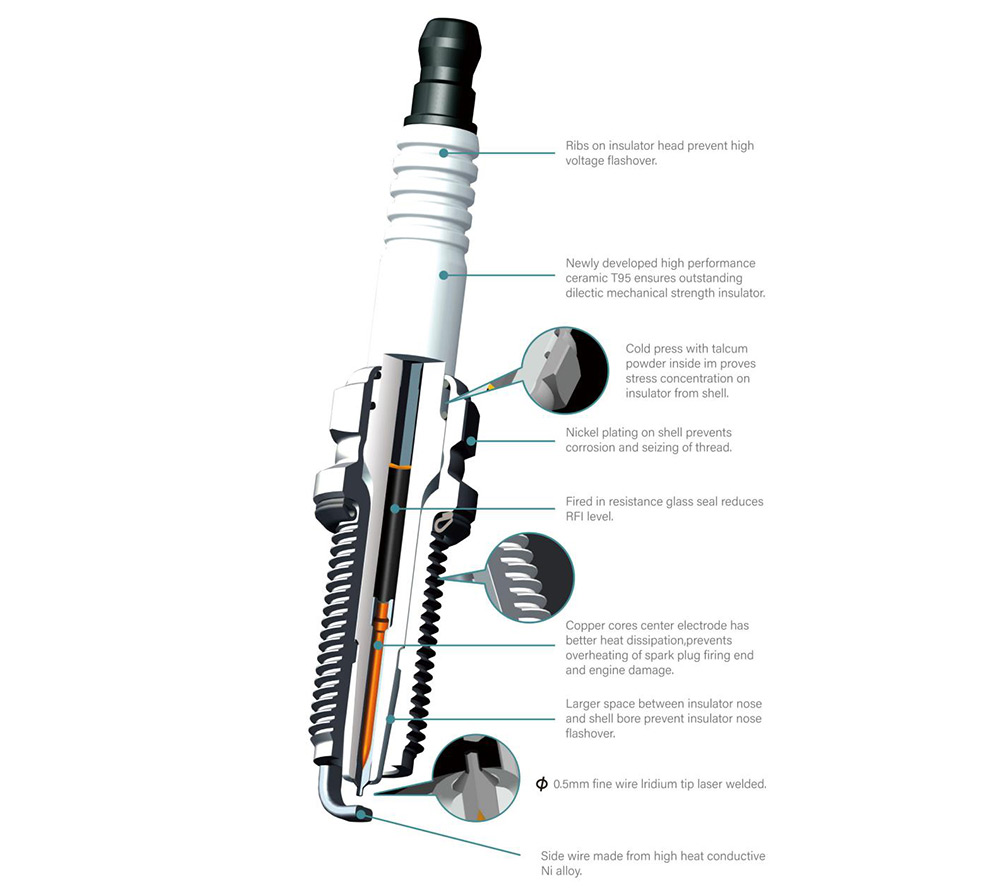What are spark plugs?
The release date:2019-11-29viewed:3457
What does a spark plug do?
The spark is generated by the discharge phenomenon between the electrodes, and the gasoline engine generates power by timely combustion of the fuel and the mixed gas, but the gasoline as the fuel is difficult to self-ignite even in a high temperature environment,and it is necessary to use a"fire"to ignite in order to make it burn in time. The spark ignition is the role of"spark plug". The overall performance of the engine depends on whether the spark plug flashes or not. We tend to use the engine as the"heart of the car", but we can better compare the spark plug to the heart of a gasoline engine or part of a diesel engine.
Structure of a spark plug

Spark plug performance
Heat resistance: can adapt to extremely heat.extremely cold
The temperature inside the spark plug is 2000℃when the mixed gas is burned, and the low temperature gas is cooled during the suction stroke, so that the rapid cooling of the 4-stroke engine turns the two revolutions of the engine into one revolution.
As well as this heat resistance, it is also required to have a heat release property that does not reach the starting point of surface ignition.
Mechanical strength: can adapt to intense pressure changes
The pressure can reach less than 1 during suction stroke, and can reach 45 or more during the explosion. The only mechanical strength that can accommodate this intense pressure change.
Insulator: keep the insulator of the high Voltage
Air tightness: maintain air tightness in a harsh environment
Under the sudden temperature change and pressure change,it is required to maintain the air tightness between the mechanical box and the insulator.
Wear resistance: electrode consumption
In the harsh environment, and such wear resistance is required.
Oil fouled resistance
